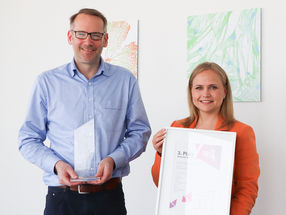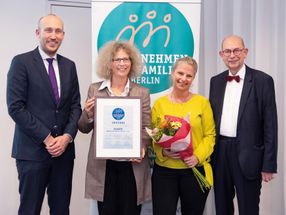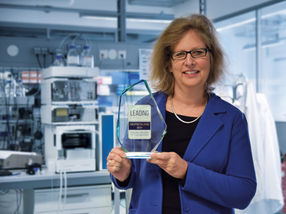Gender inequality in scientific professions
Global survey results
Recent global survey reveals that female scientists are more likely to be dissatisfied with salary/benefits, job availability, gender barriers, and how they feel valued as scientists than their male colleagues (within a 5% range).
The Science Advisory Board’s “Global Science 2015” survey sought scientists’ feedback to advise people that are interested in pursuing a scientific career. Participants from around the world shared information about how they became scientists and what it's like to be a scientific professional. “We originally set out to look at what it means to be a scientist,” said Quentin Kreilmann, Science Advisory Board Community Manager. “We found two narratives depending on gender, one of which comes with additional challenges.”
Survey results coincide with the recent, controversial statements made by Tim Hunt, Nobel laureate and Royal Society fellow. His comments led to his resignation from his faculty position at University College London (UCL) after stirring controversy at the World Conference of Science on June 9th, 2015. Hunt stated that women in labs "cry" when criticized and "fall in love" with male colleagues. His comments have opened a global debate on the treatment of women in scientific, technical, engineering, and mathematical (STEM) careers.
The Global Science 2015 survey sample includes 1,478 respondents, 58% men and 42% women, from North America, Europe, Asia, and South America. The study fielded during May 2015 and has produced some interesting data on the experiences, perceptions, and differences between male and female scientists.
Women are generally underrepresented in STEM. More women are pursuing scientific careers, but men still largely dominate these professions. The study results showed that some women see gender as a barrier to pursuing a career in science, whereas men did not. When asked, “based on your experience, what do you perceive to be the biggest barrier to pursuing a career in STEM,”15% of female respondents selected gender, compared with only 2% for their male counterparts.
Women also report gender inequality after attaining scientific positions. Following Tim Hunt’s initial comments regarding “the trouble with girls” in science, he later stated that he stood by some of his comments and claimed that attraction between colleagues is, “very disruptive to the science because it's terribly important that in a lab people are on a level playing field.”
But after factoring out office romances, the playing field does not appear to be level. This research shows that women feel less valued in the workplace and more misunderstood as scientists. Forty percent of female respondents reported that the quality of their management negatively affects their job satisfaction (compared with 34% for men). Forty one percent reported feeling misunderstood by others or isolated because of their scientific career.
“While our study shows that women, in general, report being satisfied with their STEM careers, and would elect to enter the same career if given a choice, they also face challenges entering the STEM workplace and additional challenges once they obtain positions,” said Larry R. Miller, Ph.D., Executive Director of The Science Advisory Board.
Organizations
Other news from the department career

Get the life science industry in your inbox
By submitting this form you agree that LUMITOS AG will send you the newsletter(s) selected above by email. Your data will not be passed on to third parties. Your data will be stored and processed in accordance with our data protection regulations. LUMITOS may contact you by email for the purpose of advertising or market and opinion surveys. You can revoke your consent at any time without giving reasons to LUMITOS AG, Ernst-Augustin-Str. 2, 12489 Berlin, Germany or by e-mail at revoke@lumitos.com with effect for the future. In addition, each email contains a link to unsubscribe from the corresponding newsletter.
More news from our other portals
Last viewed contents
Center to bring agricultural innovations to China

Novel nanotherapy breakthrough

Small protein, big impact - A small protein acts as a sensitive alarm for bacteria to be alert to antimicrobial peptides

Beer hops compounds could help protect against Alzheimer’s disease
Aptuit and Siena Biotech Announce Strategic Relationship in Italy
Former Merck CEO appointed Chair of the AiCuris Supervisory Board

SmartCal | Certified reference materials | Mettler-Toledo

Methane-eating bacteria convert greenhouse gas to fuel - State-of-the-art method reveals never-before-seen atomic structures controlling the process
Trifunctional antibody Removab from Fresenius Biotech awarded Galenus von Pergamon Prize for drug innovation












































